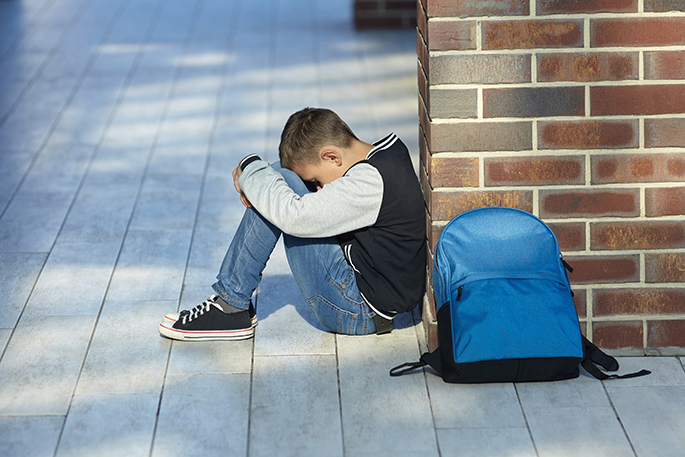Nearly a quarter of New Zealand children taking part in an international survey say their schools are only sometimes safe for them.
While 63 per cent say their school was always safe, the information shows one in three children are feeling scared or unsure about their safety.
'Too many children are worried about being physically hurt and bullying in schools,” says ChildFund New Zealand chief executive Paul Brown. Read here for more about the organisation.
There is growing evidence that shows an association between positive perceptions of school climate, which encompasses safety and relationships, and improved outcomes for students and teachers.
'Research shows that how students feel at school impacts on both academic success and their wellbeing,”
'It's encouraging that our kids value their friendships so highly, and that the majority feel safe. Our kids want school to be a place they can enjoy spending their time and learn without fear. For around one in three, however, their feelings of being unsafe are concerning.
'To our kids, being safe at school means feeling protected and encouraged – many think of it as a second home.”
When asked 'what do you love most about school”, 44 per cent of New Zealand children in the survey chose ‘being with friends' and 36 per cent ‘learning new things'.
The results are opposite those of children in developing countries where 51 per cent of children chose learning new things and 19 per cent chose being with friends.
Even before entering secondary school, children value education as the key to their future. Almost two-thirds of New Zealand respondents (65 per cent) say education will help them get a better job, while 21 per cent believe it will help them make a difference in New Zealand.
A combined 14 per cent believe school will prepare them to care for their parents or be a better person.
In the 2013 survey, New Zealand children identified education and safety as their top priorities with 65 per cent of New Zealand children agreeing with the statement 'everyone should have a good education” and 62 per cent with 'everyone should be safe from crimes and also violence”; the latter result was significantly higher than the global average.
Children were free to choose these priorities from issues that included everything from transportation to the environment.
Eight hundred and four children aged 10-12 from schools up and down New Zealand were among the 6,226 children from 41 countries who participated globally in the just released 2016 ChildFund Small Voices, Big Dreams survey.
Globally, 34 per cent of children feel safe only sometimes or never when at school. There is no significant difference between developed and developing nations. Children's perceptions of safety are also aligned.
Predominant views of what being safe includes, 'not being at risk of physical or emotional abuse or violence” (28 per cent all; 40 per cent NZ), 'security measures are in place to protect students and they feel safe” (43 per cent all; 48 per cent NZ), and 'schools feel like a second home where children are welcomed” (21 per cent all; 28 per cent NZ).
'Children around the world are worried about some very grown-up issues,” ChildFund Alliance secretary general Meg Gardinier.
'The world's leaders recognised the importance of safe, meaningful education when they adopted the United Nations' Sustainable Development Goal on September 4 2015: ‘Ensure inclusive and equitable quality education and promote lifelong learning opportunities for all.'
'ChildFund Alliance is committed to doing all it can to provide children around the world with a safe, quality education. We recognise this is ambitious, but there has been much progress. The number of children and young people not attending school has almost halved since the turn of the century and in most countries there are now as many girls as boys in primary school.”
Last year, when asked what the adults in their life could do to protect children from harm: the majority of children say it is as simple as listening to what children have to say.
ChildFund has taken children's views to the highest levels of the United Nations and world governments. This has resulted in violence-specific goals and targets being added to the new Global Goals for Sustainable Development, a global agenda for the next 15 years.
Children's voices for change have also been reinforced by a ChildFund Alliance-commissioned report by the Overseas Development Institute analysing research from around the world, including New Zealand.
The ODI report estimated that the total economic costs of physical, psychological and sexual violence against children are up to 8 per cent of global Gross Domestic Product, close to US$7 trillion a year.



0 comments
Leave a Comment
You must be logged in to make a comment.